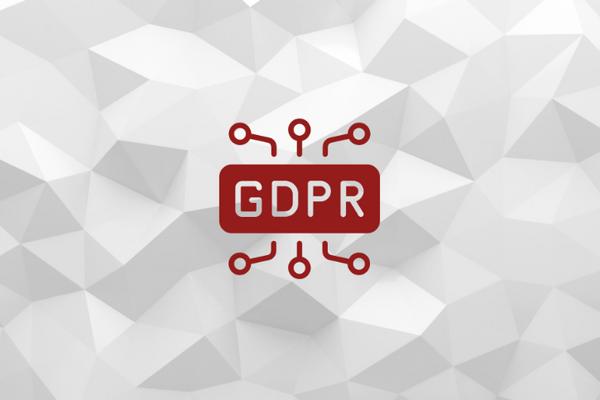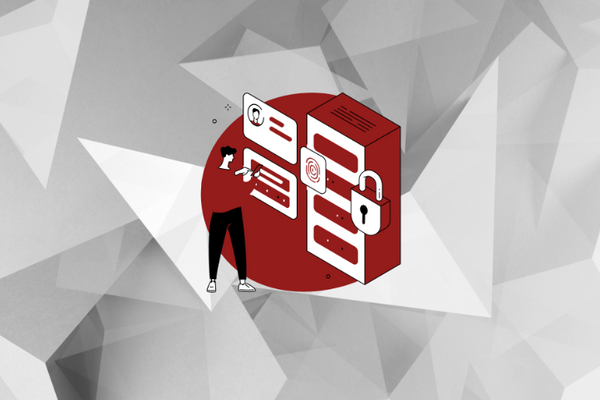
In an era marked by the rapid growth of unprecedented amounts of data on the web, data protection under GDPR (General Data Protection Regulation) has gained immense significance.
This article aims to shed light on the GDPR’s key principles and requirements, aiming to foster an understanding of this crucial regulatory framework for both consumers and businesses alike.
We’ll cover the principles of data protection under the GDPR, explore GDPR compliance requirements, and discuss the importance of personal information protection.
Let’s dive right in.
Key Takeaways
The General Data Protection Regulation (GDPR) is a comprehensive framework introduced by the EU that safeguards personal data, affecting all entities processing EU residents’ data.
GDPR is grounded on seven key principles: lawfulness, fairness and transparency, purpose limitation, data minimization, accuracy, storage limitation, integrity and confidentiality (security), and accountability.
To ensure compliance with the GDPR, conduct regular data protection impact assessments, maintain a record of processing activities, appoint a Data Protection Officer if necessary, and abide by the six lawful bases for processing personal data.
Overview of the GDPR
overview of the gdpr.png

The General Data Protection Regulation (GDPR), implemented by the European Union (EU) in May 2018, revolutionized data privacy laws across the globe. Data protection under GDPR replaced the 1995 Data Protection Directive, serving as the most comprehensive framework for the protection of personal data.
The primary objective of GDPR is to harmonize data privacy laws across EU member states and empower consumers to have control over their personal information. Its jurisdiction applies to all businesses, regardless of geographical location, that process the personal data of EU residents.
This scope of applicability makes the GDPR a critical consideration for businesses worldwide, ensuring their services or operations involving EU residents’ data align with the EU’s stringent data protection standards.
The GDPR represents a fundamental shift in the approach to data protection, prioritizing transparency, security, and accountability.
Key Principles of GDPR
The foundation of EU GDPR’s effectiveness lies in its seven key principles: lawfulness, fairness, and transparency; purpose limitation; data minimization; accuracy; storage limitation; integrity and confidentiality (security); and accountability.
These principles not only define the path to compliance but also set the tone for data protection culture within businesses:
Lawfulness, fairness, and transparency: This principle obligates businesses to process personal data lawfully, fairly, and transparently. It mandates clear communication with consumers about how their data is being used.
Purpose limitation: Data should be collected for specified, explicit, and legitimate purposes and not further processed in a manner incompatible with those purposes.
Data minimization: Personal data collected must be adequate, relevant, and limited to what is necessary for the purposes for which it is processed.
Accuracy: Personal data must be accurate and up-to-date. Businesses are obligated to take every reasonable step to ensure inaccurate personal data, considering the purposes for which they are processed, are erased or rectified without delay.
Storage limitation: Personal data should not be kept in a form that allows the identification of consumers for longer than necessary.
Integrity and confidentiality: Personal data must be processed in a way that ensures appropriate security, including protection against unauthorized or unlawful processing, accidental loss, destruction, or damage.
Accountability: Businesses must not only comply with these principles but also demonstrate their compliance.
Who Conducts Enforcement of the GDPR?
Who Conducts Enforcement of the GDPR.png

Enforcement of the GDPR is conducted primarily by the Data Protection Authorities (DPAs) of EU member states.
Each country within the EU has its DPA, and its roles encompass auditing businesses for GDPR compliance, handling complaints from consumers, and enforcing the GDPR through sanctions when necessary. The European Data Protection Board (EDPB) supervises the DPAs and ensures consistent application of the GDPR across the EU.
Non-compliance with the GDPR carries significant consequences, which can be both financial and reputational.
The potential fines are tiered, with the most severe penalties reaching up to €20 million or 4% of the business’s global annual turnover, whichever is higher. Additionally, businesses can face reputational damages as breaches of data protection are made public by the DPAs.
Furthermore, under the GDPR, consumers have the right to file complaints with DPAs if they believe their data has been mishandled, and they may receive compensation. DPAs can take enforcement action based on these complaints, further emphasizing the criticality of compliance for businesses.
Lawful Basis for Processing Personal Data Explained
The General Data Protection Regulation (GDPR) stipulates that personal data can only be processed if there is a lawful basis to do so. A lawful basis is a legal justification for handling personal data and is a fundamental element of GDPR compliance.
The decision to process data must be valid, meaning there must be permission, and the consumer’s rights must be protected.
There are six lawful bases for processing personal data under the GDPR. The appropriate basis to use will depend on the specific context and purpose of the data processing. The six lawful bases are:
Consent: The individual has given clear consent for the processing of their personal data for a specific purpose. For example, a consumer subscribes to a newsletter and consents to receive marketing emails.
Contractual necessity: The processing is necessary for a contract the business has with the individual. For instance, processing a consumer’s address to deliver a product they’ve purchased online.
Legal obligation: The processing is necessary for the business to comply with the law. For example, businesses process data to comply with tax laws.
Legitimate interests: The processing is necessary for the business’s legitimate interests unless there is a good reason to protect the individual’s personal data, which overrides those legitimate interests. For instance, a business conducts fraud prevention checks.
Vital interests: The processing is necessary to protect someone’s life. This could occur in a medical emergency where personal data needs to be processed to provide care or treatment.
Public task: The processing is necessary for the business to perform a task in the public interest or for its official functions. This could be processing data for public health purposes or to provide public services.
The GDPR requires businesses to provide information about both the lawful basis for processing and the purposes of the processing in its privacy notice. Furthermore, different lawful bases have different implications for individuals’ rights, so it’s essential for businesses to select the appropriate lawful basis for their processing activities.
Data Subject Consent Requirements
In the realm of GDPR, the concept of ‘consent’ is paramount and plays a pivotal role in data processing activities. Consent is one of the six lawful bases for processing personal data, wherein an individual willingly grants permission to process their personal data for a specific purpose.
It forms a key part of GDPR’s drive towards enhancing individual rights and affirming personal control over data. Under GDPR, consent must meet certain requirements to be considered valid.
Silence, pre-ticked boxes, or inactivity do not constitute consent. Here are the key elements of valid consent under GDPR include:
Freely given: The individual has a genuine choice and control over how their data is used.
Specific: Consent is granted for a specific purpose and is not broad or vague.
Informed: The individual must be given sufficient information to make an informed decision about whether to consent.
Unambiguous: The individual must take clear affirmative action to give their consent.
Data Protection Processing Principles
The GDPR lays down a set of fundamental data protection principles that dictate how personal data should be processed. These principles form the bedrock of the GDPR and are key to achieving compliance:
Purpose limitation: Personal data can only be collected for specific, explicit, and legitimate purposes.
Data minimization: Only the minimally necessary amount of data should be collected and processed.
Accuracy: Personal data must be accurate, complete, and kept up-to-date.
Storage limitation: Data should not be stored for longer than necessary in relation to the purposes for which they are processed.
Accountability: Data controllers must be able to demonstrate compliance with the other principles, implementing measures that ensure compliance and providing documentation as proof.
Rights of Data Subjects
Under the GDPR, individuals, often referred to as ‘data subjects,’ are granted specific rights concerning their personal data. These rights are intended to empower individuals, giving them control over their personal data:
Right to be informed: Individuals have the right to be informed about the collection and use of their personal data.
Right of access: Individuals have the right to access their personal data and supplementary information.
Right to rectification: Individuals have the right to have inaccurate personal data corrected or completed if it is incomplete.
Right to erasure: Also known as the ‘right to be forgotten’, individuals can request the deletion or removal of their personal data.
Right to restrict processing: Individuals have the right to request the restriction or suppression of their personal data.
Right to data portability: This allows individuals to obtain and reuse their personal data for their own purposes across different services.
Right to object: In certain circumstances, individuals are entitled to object to their personal data being processed.
Rights related to automated decision-making, including profiling: Individuals have the right not to be subject to a decision based solely on automated processing.
Appointing a Data Protection Officer (DPO)
Appointing a Data Protection Officer.png

A Data Protection Officer (DPO) is an essential figure within the GDPR framework, acting as the intermediary between relevant stakeholders, including businesses, data subjects, and supervisory authorities.
A data protection officer is needed if your business processes sensitive data on a large scale or are a part of regular monitoring of individuals.
The DPO is responsible for supervising a business’s data protection strategy and its implementation to ensure compliance with GDPR requirements.
Here are the primary responsibilities of a DPO under the GDPR include:
Informing and advising the business and its employees about their obligations to comply with the GDPR and other data protection laws.
Monitoring compliance with the GDPR and other data protection laws, including managing internal data protection activities, advising on data protection impact assessments, training staff, and conducting internal audits.
Acting as the first point of contact for supervisory authorities and for individuals whose data is processed (employees, consumers, etc.).
Coordinating with the management to establish and maintain a data protection framework within the business.
Reporting regularly to the top management about data protection activities and issues.
Data Breach Notification Requirements
Under the GDPR, a data breach notification is a mandatory requirement that businesses must fulfill if a breach of security leads to the accidental or unlawful destruction, loss, alteration, or unauthorized disclosure of or access to personal data.
Data breaches can have severe consequences for individuals, including identity theft, fraud, and potential financial loss, making these notifications crucial for consumer protection.
Businesses are required to notify the relevant supervisory authority without undue delay and, where feasible, not later than 72 hours after becoming aware of the breach. If the notification is not made within 72 hours, it should be accompanied by reasons for the delay.
The process for data breach notification includes the following steps:
Detect and identify the breach: Businesses should have security measures in place to promptly detect and identify any data breaches.
Assess the risk: Evaluate the potential impact of the breach on individuals’ rights and freedoms.
Notify the supervisory authority: If the breach is likely to result in a risk to individuals’ rights and freedoms, the relevant supervisory authority must be notified within 72 hours.
Document the breach: Details of the breach, its effects, and remedial actions taken should be documented.
Notify affected individuals: If the breach is likely to result in a high risk to individuals’ rights and freedoms, they must be informed directly and without undue delay.
Importance of Data Protection Impact Assessments (DPIAs)
Data Protection Impact Assessments (DPIAs) serve as an integral component within the GDPR regulatory framework. DPIAs are essentially a form of risk assessment designed to identify and analyze how data privacy might be impacted by certain actions or activities carried out by businesses.
DPIAs are legally required for processing operations that are likely to result in a high risk to the rights and freedoms of individuals, particularly when new technologies are being deployed, or a significant change in processing activities is being made.
The importance of DPIAs cannot be understated. They help businesses to systematically analyze, identify, and minimize the data protection risks of a project or plan at an early stage. DPIAs not only ensure compliance with GDPR but also make sure that privacy and data protection are at the forefront of operational processes.
They instill a sense of accountability within businesses and are pivotal in fostering a culture of data protection by design and by default.
Privacy by Design Principle Explained
The GDPR introduces the concept of ‘privacy by design,’ which fundamentally transforms the way businesses approach data protection.
This principle mandates that privacy and data protection considerations should not be an afterthought but should be an integral part of the design and implementation of any system, service, or product from the very onset.
Privacy by design calls for the inclusion of data protection from the inception of the designing of systems rather than appending it as an addition. It refers to the philosophy and approach that ensures privacy and data protection compliance is embedded directly into the design and operation of IT systems, networked infrastructure, services, and business practices.
Importance of Data Processing Agreements (DPAs)
Data Processing Agreements (DPAs) are an essential part of ensuring GDPR compliance when data processing is being carried out on behalf of a data controller.
As the GDPR holds both the data controller (the entity that determines the purposes and means of processing personal data) and the data processor (the entity that processes personal data on behalf of the controller) responsible for their roles in data processing, a DPA acts as a legally binding document that sets the terms and conditions of this.
DPAs ensure that both parties understand and commit to their responsibilities in processing personal data. They must specify details of the processing operations, including the duration, nature, and purpose of the processing, the types of personal data involved, and the obligations and rights of the data controller.
Importance of Record-Keeping and Documentation
Record-keeping and documentation are vital components of GDPR compliance. The GDPR has introduced comprehensive requirements for the way businesses document their data processing activities.
Businesses are expected to keep detailed records of their processing activities, including the reasons for processing personal data, the categories of data processed, and where the data is being sent.
This requirement applies to both data controllers and data processors. Proper record-keeping enables businesses to map their data flows and helps them understand and manage their data processing activities better. Documentation requirements extend beyond mere records of processing activities.
The types of records and documents businesses should maintain include:
Records of data processing activities: A detailed account of all processing activities, including the purposes of processing and a description of the data subjects and categories of personal data.
Data Protection Impact Assessments (DPIAs): Documented DPIAs, including the process, findings, and any remedial actions taken.
Data breaches: Records of any data breaches, their effects, and the remedial actions taken.
Consent records: Proof that the business has obtained valid consent from individuals where applicable.
Data Processing Agreements (DPAs): Copies of any DPAs between the data controller and data processor.
Privacy policies and notices: Copies of privacy policies and notices provided to individuals.
Data protection officer (DPO) details: Information about the DPO, including their contact details and the tasks assigned to them.
All of these records and documents must be kept up to date and must be made available to the relevant data protection authorities upon request.
Closing
Understanding the GDPR is vital for businesses aiming to protect personal data in today’s digital age. It’s a continuous journey requiring ongoing attention, resources, and expertise. To help navigate this complex process, Captain Compliance is ready to assist.
At Captain Compliance, we provide tailored services to guide businesses through the GDPR, ensuring their operations are compliant and their customers’ data is secure. We’re more than a service provider; we’re a dedicated partner committed to protecting your business and your consumers’ data.
Ready to elevate your data protection strategy? Contact us today. Don’t leave it to chance; choose proactive data protection with Captain Compliance.
FAQs
What is Personal Data Under the GDPR?
Under the GDPR, personal data is any information that can identify an individual. This can include names, addresses, email addresses, phone numbers, identification numbers, and data related to an individual’s physical, physiological, genetic, mental, economic, cultural, or social identity.
Click here to learn more about the types of information that qualify as personal data
What are the Penalties for Non-Compliance with GDPR?
Non-compliance with GDPR can result in severe penalties, including fines up to €20 million, or 4% of the firm’s worldwide annual revenue from the preceding financial year, whichever amount is higher.
Don’t leave your business vulnerable to hefty fines. Connect us today to ensure your practices are compliant.
What Constitutes a Data Breach Under the GDPR?
A data breach under the GDPR is a security incident that leads to the accidental or unlawful destruction, loss, alteration, or unauthorized disclosure of, or access to, personal data transmitted, stored, or otherwise processed.
Click here to understand more about data breaches and safeguard your business.
What is the Role of a Data Protection Officer (DPO) Under the GDPR?
A DPO is responsible for overseeing data protection strategy and implementation to ensure compliance with GDPR requirements. The DPO acts as a point of contact between the business and any Supervisory Authorities (SAs) that oversee activities related to data.